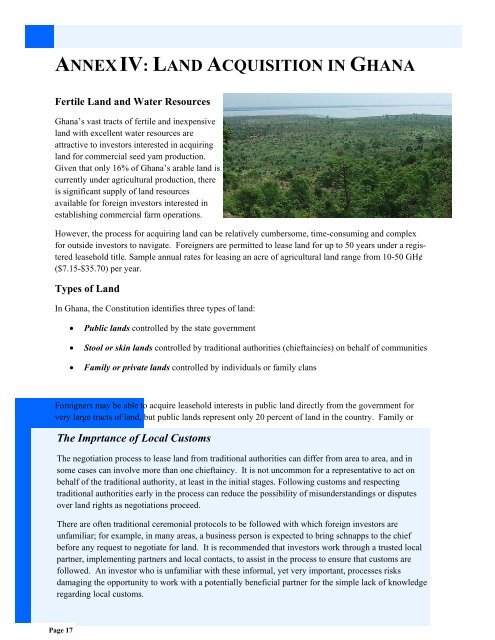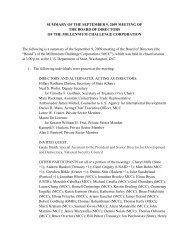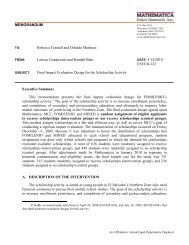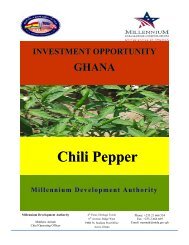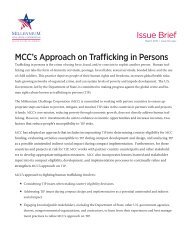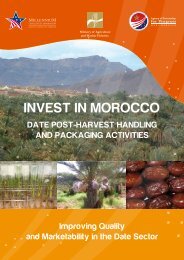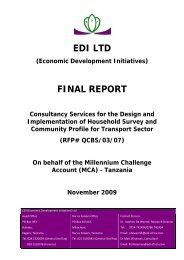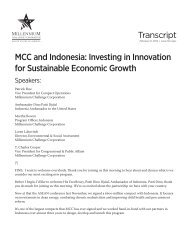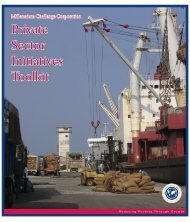Yam Seed Production - Millennium Challenge Corporation
Yam Seed Production - Millennium Challenge Corporation
Yam Seed Production - Millennium Challenge Corporation
You also want an ePaper? Increase the reach of your titles
YUMPU automatically turns print PDFs into web optimized ePapers that Google loves.
ANNEX IV: LAND ACQUISITION IN GHANA<br />
Fertile Land and Water Resources<br />
Ghana’s vast tracts of fertile and inexpensive<br />
land with excellent water resources are<br />
attractive to investors interested in acquiring<br />
land for commercial seed yam production.<br />
Given that only 16% of Ghana’s arable land is<br />
currently under agricultural production, there<br />
is significant supply of land resources<br />
available for foreign investors interested in<br />
establishing commercial farm operations.<br />
However, the process for acquiring land can be relatively cumbersome, time-consuming and complex<br />
for outside investors to navigate. Foreigners are permitted to lease land for up to 50 years under a registered<br />
leasehold title. Sample annual rates for leasing an acre of agricultural land range from 10-50 GH¢<br />
($7.15-$35.70) per year.<br />
Types of Land<br />
In Ghana, the Constitution identifies three types of land:<br />
�� Public lands controlled by the state government<br />
�� Stool or skin lands controlled by traditional authorities (chieftaincies) on behalf of communities<br />
�� Family or private lands controlled by individuals or family clans<br />
Foreigners may be able to acquire leasehold interests in public land directly from the government for<br />
very large tracts of land, but public lands represent only 20 percent of land in the country. Family or<br />
The Imprtance of Local Customs<br />
The negotiation process to lease land from traditional authorities can differ from area to area, and in<br />
some cases can involve more than one chieftaincy. It is not uncommon for a representative to act on<br />
behalf of the traditional authority, at least in the initial stages. Following customs and respecting<br />
traditional authorities early in the process can reduce the possibility of misunderstandings or disputes<br />
over land rights as negotiations proceed.<br />
There are often traditional ceremonial protocols to be followed with which foreign investors are<br />
unfamiliar; for example, in many areas, a business person is expected to bring schnapps to the chief<br />
before any request to negotiate for land. It is recommended that investors work through a trusted local<br />
partner, implementing partners and local contacts, to assist in the process to ensure that customs are<br />
followed. An investor who is unfamiliar with these informal, yet very important, processes risks<br />
damaging the opportunity to work with a potentially beneficial partner for the simple lack of knowledge<br />
regarding local customs.<br />
Page 17


